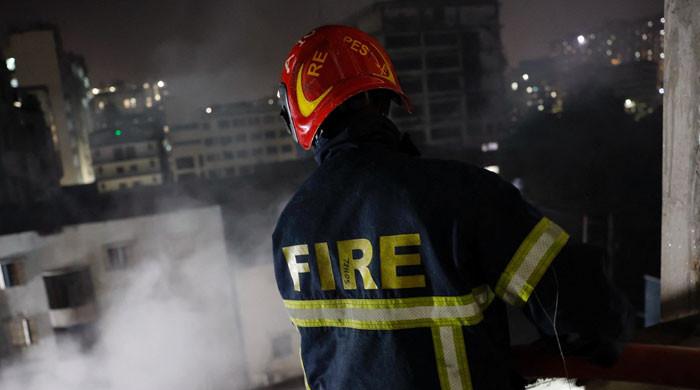Alabama death penalty: What is nitrogen hypoxia execution?
Nitrogen, a colourless and odourless gas, is naturally present in the atmosphere
January 25, 2024

Alabama is set to carry out the first-ever execution by nitrogen gas as the US Supreme Court declined to intervene in the case of prison inmate Kenneth Smith, scheduled to take place within a 30-hour window starting Thursday.
Smith's execution follows a botched lethal injection in November 2022, Al Arabiya reported.
What is nitrogen hypoxia?
Nitrogen hypoxia, the novel execution method, has sparked controversy due to concerns about potential excessive pain or torture. The process involves inhaling lethal concentrations of nitrogen gas, causing asphyxiation or complete oxygen deprivation.
While lethal gas is broadly authorised for execution in multiple states, only Alabama, Mississippi, and Oklahoma specifically permit nitrogen hypoxia, with Alabama being the only state to issue a public protocol, albeit redacted.
Nitrogen, a colourless and odourless gas, is naturally present in the atmosphere, constituting about 75% of the air. However, its inhalation is only safe when mixed with enough oxygen.
How will the Alabama execution take place?
The controversial method involves strapping the inmate to a gurney and administering nitrogen through a gas mask, inducing oxygen deprivation leading to unconsciousness and, ultimately, death.
Alabama's protocol specifies the use of a NIOSH-approved Type-C full facepiece-supplied air respirator, similar to industrial masks providing life-saving oxygen. The gas will be released for a specified duration, linked to physiological indicators.
Why is the method controversial?
Controversy surrounds the method, with the US Chemical Safety Board highlighting potential risks associated with nitrogen asphyxiation. Research studies indicate that even partial oxygen displacement can result in severe consequences, such as impaired respiration, permanent heart damage, nausea, vomiting, and impaired judgment.
Smith's legal team argues against using him as a "test subject for a lethal experiment." The UN human rights office has urged Alabama to halt the execution, citing a lack of scientific evidence to prevent "grave suffering," suggesting that nitrogen inhalation as a method could amount to torture or other forms of cruel, inhuman, or degrading treatment under international human rights law.











